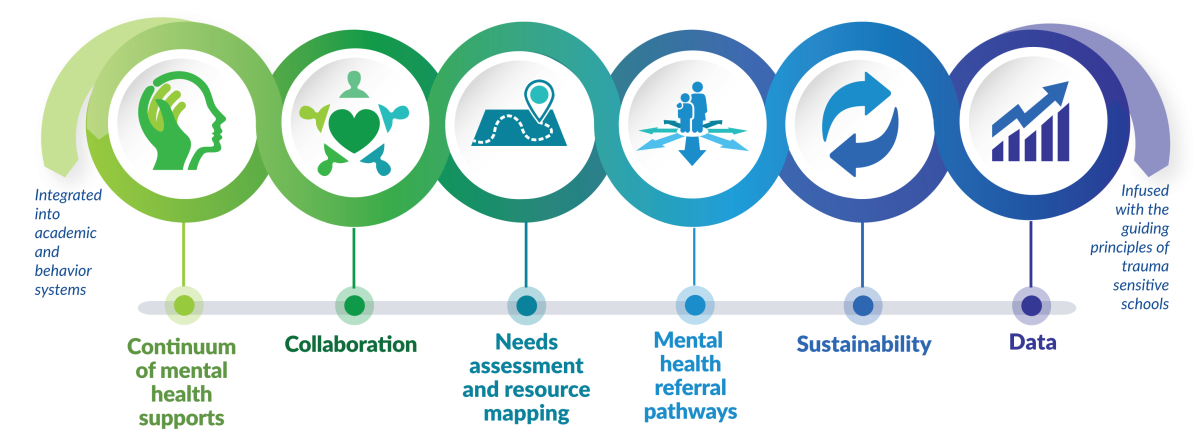The Wisconsin Department of Public Instruction recently published a guide, “The Wisconsin School Mental Health Framework: Building and Sustaining a Comprehensive System", which presents a vision for wellbeing for all students and staff in Wisconsin schools. The framework establishes a common language and approach to implementing a system for coordinating and delivering school mental health services. Comprehensive school mental health systems include a continuum of services and supports that promote positive school climate, social and emotional wellbeing, and mental health, and eliminate systemic barriers to wellbeing and success for all students and school staff.
The newly released framework builds on the Wisconsin School Mental Health Framework published in 2016, and approaches mental health as an asset that schools can actively work to develop in students and staff. To build a comprehensive system that serves all students, schools work to integrate mental health resources and supports into their existing academic and behavioral supports.

The updated framework utilizes a continuum of mental health supports that are flexible and responsive to the fact that mental health is dynamic, fluid, and that challenges are most often temporary. This continuum helps break down the stigma around mental health and ensures that all students have the supports they need, when they need them. The framework also includes supports that increase staff wellbeing, an essential component of a successful school.
The framework update comes at a time when schools are increasingly experiencing the impacts of the COVID-19 pandemic on student and staff wellbeing. According to the Voices of Wisconsin Students, a recent study done by the Wisconsin Institute for Public Policy and Service, students are experiencing:
- loss of important social connections,
- lack of healthy coping mechanisms,
- and high and increasing rates of stress, anxiety, and depression.
Just as notable, however, are the many protective factors highlighted in this same study. Students are also reporting:
- a greater sense of self awareness,
- a deeper sense of gratitude for loved ones, teachers and school,
- the ability to identify a connection to at least one trusted adult.
Understanding these impacts is critical when planning and implementing a systemic approach to supporting mental health. Quality school mental health systems not only focus on addressing existing mental health challenges, but proactively cultivate resilience. This framework provides schools a blueprint for promoting wellbeing in all students and staff, despite the current challenges.
For more information on the Wisconsin School Mental Health Framework, please contact DPI’s School Mental Health Consultants, Liz Krubsack at elizabeth.krubsack@dpi.wi.gov or Jessica Frain at jessica.frain@dpi.wi.gov.